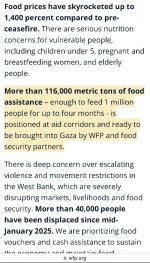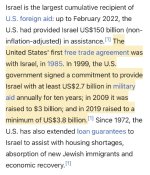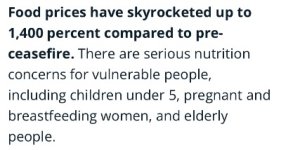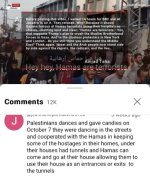Does Prime Minister Carney know what genocide means?
His repeated emphasis on funding for Gaza — without matching clarity on the cause of the war or the nature of the enemy — is not just morally imbalanced, it is geopolitically reckless.
Author of the article:Alan Kessel, Special to Toronto Sun
Published Apr 26, 2025 • Last updated 16 hours ago • 4 minute read
At a recent Liberal Party rally, Prime Minister Mark Carney responded to a heckler who accused Israel of perpetrating a genocide in Gaza with the words: “I’m aware. It’s why we have an arms embargo.” That sentence was not just a deflection — it was a tacit endorsement of one of the most dangerous and legally baseless accusations circulating in today’s global discourse.
Unfortunately, it was not an isolated incident. During the French-language leaders’ debate on April 16, NDP leader Jagmeet Singh invoked the charge of genocide in Gaza. Carney had an opportunity to push back, clarify, and reject the slanderous misuse of the term. He did not. Instead, he remained silent in the face of Singh’s framing, effectively allowing the accusation to stand unchallenged.
Then, in the English-language debate on April 17, Singh again accused Israel of committing genocide and directly criticized Carney for failing to acknowledge that fact and do more to stop it. This time, Carney responded by focusing entirely on humanitarian aid, stating that $100 million was ready to be sent to agencies assisting Gazans. He made no mention of Israel’s right to self-defence, nor did he challenge Singh’s inflammatory rhetoric. Once again, the moral asymmetry was stunning.
And yet, across both debates, not a single federal leader made reference to the eight Canadians who were brutally murdered by Hamas on Oct. 7, 2023.
To be sure, Carney has condemned Hamas. He has recognized that the group is responsible for horrific violence. But what is revealing is that his condemnation is never the starting point. He leads with calls for a ceasefire, the release of hostages, and the rebuilding of Gaza. That sequence matters. The release of hostages should be the first and non-negotiable demand. And the removal of Hamas, a genocidal terror organization, should be a red line — not an afterthought.
There was, however, one notable exception to the broader pattern of moral equivocation: Conservative Leader Pierre Poilievre, who has consistently defended Israel’s right to self-defence and has called for strong action against Hamas sympathizers threatening Jews in Canada. Poilievre has demonstrated clarity about the threat, justice for the victims, and support for Israel as a democratic ally facing existential stakes.
The contrast could not be more stark. In the face of the worst antisemitic massacre since the Holocaust — an attack that left over 1,200 people dead, including infants and the elderly, many raped, burned, mutilated, and taken hostage — Carney has failed to centre the atrocity, failed to elevate the victims, and failed to articulate Israel’s moral and legal right to defend itself.
Let us be clear: the term “genocide” has a specific legal meaning under the 1948 Genocide Convention. It requires intent “to destroy, in whole or in part, a national, ethnic, racial, or religious group.” There is no credible evidence that Israel has acted with genocidal intent. Civilian casualties — heartbreaking though they are — do not constitute genocide, particularly in a war where Hamas has deliberately used its own people as human shields and launched attacks from within hospitals, homes, and schools.
By contrast, Oct. 7 bore all the hallmarks of genocide. While Hamas did strike some military targets, the brunt of its assault was directed at civilians — families slaughtered in their homes, children burned alive, elderly women taken hostage, young people hunted at a music festival. That was not collateral damage. That was the mission. The extermination of Jews was the goal — an act of genocidal intent, by every standard of international law.
Carney’s repeated emphasis on funding for Gaza — without matching clarity on the cause of the war or the nature of the enemy — is not just morally imbalanced, it is geopolitically reckless. Israel is doing what the West has neither the will nor capacity to do: confront and eliminate a radical Islamist death cult backed by Iran. Weakening Israel undermines the West. Enabling Hamas is not just a danger to Israelis. It is a danger to Canadians, Americans, Europeans, and anyone who lives in a free society.
This moment demands more than slogans, soundbites, or bureaucratic pragmatism. It demands moral leadership — the ability to prioritize hostages over headlines, red lines over rhetoric, and justice over political convenience.
When Singh accuses Israel of genocide, the right response is not polite evasion or pivoting to aid. It is to reject the accusation, condemn Hamas’s atrocities, and affirm that the survival of Israel — and the dismantling of Hamas — are in Canada’s national interest.
Carney failed to do that — not once, but repeatedly. And in doing so, he failed not only the Jewish people and the Israeli state, but also the standards and values Canada claims to uphold.
— Alan Kessel is a senior fellow at the Macdonald Laurier Institute and a former legal adviser to the Government of Canada and deputy high commissioner of Canada to the United Kingdom.
At a recent Liberal Party rally, Mark Carney responded to a heckler who accused Israel of perpetrating a genocide in Gaza.

torontosun.com









